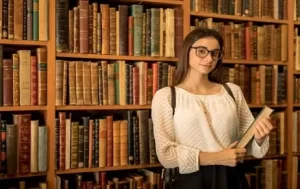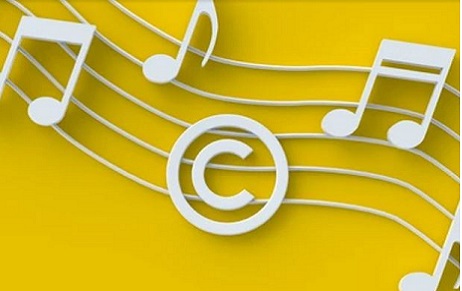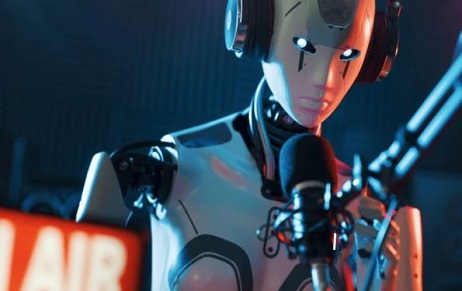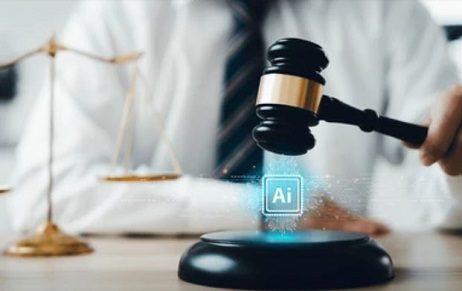Any successful café, restaurant, or retail establishment's environment is greatly influenced by its music. It…
Academic Research and Copyright Issue
INTRODUCTION
Academic research is connected to literary works, and because there are many similar research works, the likelihood of it being copied unlawfully rises. Therefore, the Copyright Act 1957 provides protection under Intellectual Property Law against unauthorized copies of works. It offers a few crucial requirements that must be met for that. The rules are often quite similar across all nations. Therefore, any study that is done typically receives easy protection in all countries. However, if someone violates that rule, they will not be covered by copyright protection and will instead be penalized. The Copyright Act protects authors by forbidding unauthorized copying of their work.
[Image Source: Freepic]

According to the definition of academic research, it is “a systematic analysis of a situation or problem with the aim of identifying facts and/or ideas that would help deal with the situation or solve the problem.” This academic or intellectual study is centered on the goals and inquiries of other researchers. It seeks solutions through formal, scientific, and organized procedures. Existing theories serve as a framework for academic study to either support or deny this assertion.
The term ‘research’ is used in so many ways in our daily lives, from our quest for customer information to writing PhD level research, in problem-solving at work. To better comprehend a topic, we are interested in or are passionate about, research is a methodical process of data collection, analysis, and interpretation. It is a protracted, narrowly targeted, exhaustive, collected, and enlightening process, and it isn’t just about gathering information—you want facts to be sent from one location to another.
WHAT IS COPYRIGHT:
The term “copyright” describes a group of legal privileges that belong to the person who first created an original work of authorship, such as a piece of literature, music, a film, or software. The owner of the copyright, or the person who created the original work, has a right over his work. He can provide others access to it or maintain complete ownership by forbidding others from reproducing or duplicating it.
Copyright has been defined in Section 14 of the Copyright Act, 1957 as an exclusive right to do or authorise the doing of any of the following acts in respect of any significant portion of a work, namely:
- Copy the work in any format and store it in any format.
- Make public copies of the material available
- Perform the work in Public
- Create any type of cinematographic film in respect of the work
- Translate the work
- Make an adaptation of the work
COPYRIGHT ISSUES IN EDUCATION
Copyright issues in education come often which can be studied in two respects –
- Public Domain- Public domain refers to the state of belonging or being accessible to the public as complete, particularly through not being subject to copyright or other lawful limits the public domain incorporates all the creative works to which no Intellectual Property Rights pertain. Those rights may have expired, been forfeited, expressly relinquished, or may be improper. Works in the public domain are inventive works that are not protected by copyright. This includes works that have been in survival long enough. It also encompasses works produced by the government, which does not copyright its work. If a work is in the public domain, attributions must still be granted to the original creator, but anybody can use or even sell the works. The public domain does not eliminate the original creator’s rights. Attributions must always be given, but one can alter the original work significantly.
- Licensing and Copyright- When a work is created by someone, he owns the copyright, which is our exclusive right as the author to own that work. He controls who else can use the work and in what manner. So, for using a copyrighted work one has to grant a license by an authority to permit usage. Assignment of copyright and licenses can comprise several limits and conditions. These can include limitations on the kind of use that can be made of the work, the phase of time for which a license applies, and requirements for payment. Whether one is granting or receiving a license, it is always a good idea to record the particulars of the license in writing. It is also a good idea to date the on-paper record of the license, and have it signed by both the licensor and licensee.
OWNERSHIP OF COPYRIGHT IN INDIA
According to Section 17 of Copyright Act 1957, except private research work in every other work owner or first author shall be the person for whom work is done or under whom the work is done i.e., work in relation to the employer and employee, the employer shall be the owner of work. The same is the case with Government work. If there is a contract that is in conflict, the author will be the proprietor of his or her work and not the employer.
CASE LAWS
Mary vs. ILP Institution of Management (2013)
Facts- In this case, the plaintiff had written a book on a particular topic. The institution made use of it for educating students and one professor of the institution started selling the book in his own name. When the plaintiff came to know about this, she filed a suit against the institution for using her work by the professor in his own name and infringing her copyrighted work.
Judgment- It was held that the institution was not aware of this thing so the institution cannot be held liable, but the professor was liable for infringing the plaintiff’s copyrighted work and he was ordered to pay a compensation of INR 2, 00,000/- to the plaintiff.
Ashwin Gupta vs. Little Flowers High school, Goa (2020)
It was held in this case that where the literary work is used for educational purposes i.e., for fair use, it will not amount to infringement of the person’s right of copyright so here suit was dismissed by High Court.
CONCLUSION
With respect to boom in the technological advancements, especially in the academic domain, ownership of scholarly research generated in and for educational institutions is expected to pose new difficulties. A basic understanding of legal concepts related to copyright laws is necessary when resolving copyright issues involving academic research. Thus, it can be inferred that academic researchers and scholars, including writers and examiners, must use prudence when engaging in creative endeavors.
Author: Akash Jindal, a student of Bharati Vidyapeeth New Law College, Pune. in case of any queries please contact/write back to us via email to chhavi@khuranaandkhurana.com or at IIPRD.



